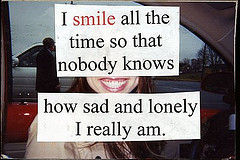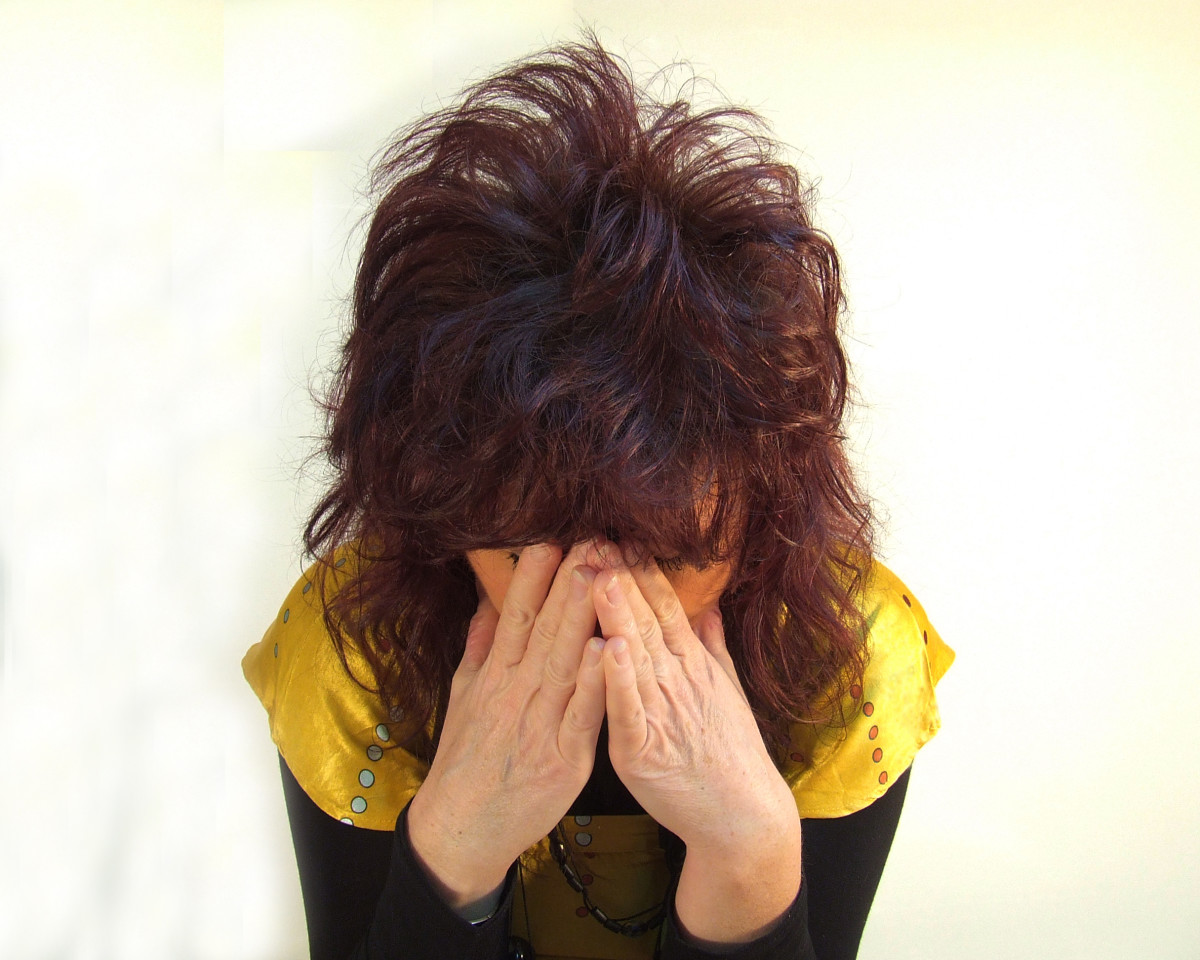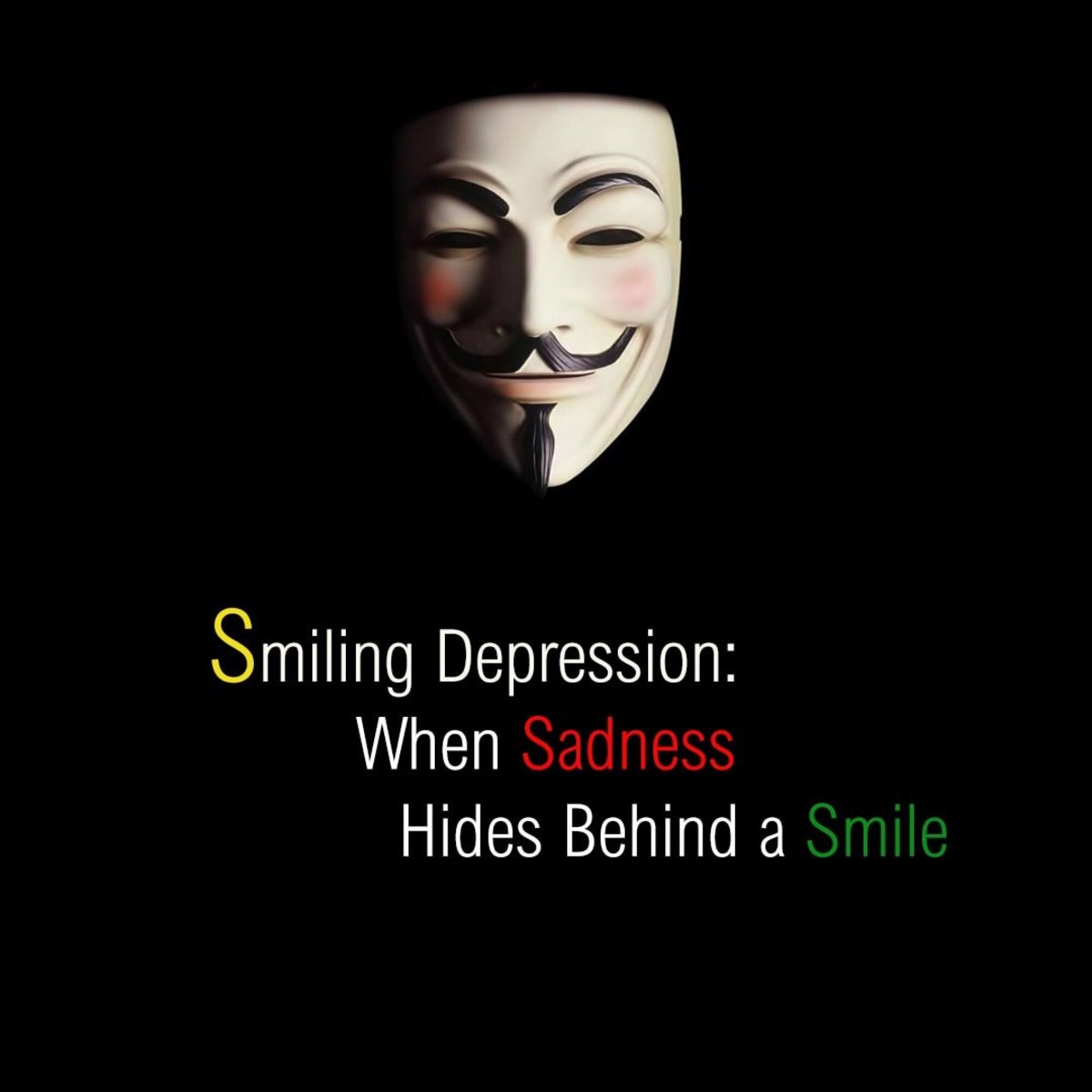Treating Depression: How to Lift The Clouds

QUIZ: ARE YOU DEPRESSED?
- Do you feel unhappy, empty, numb, worthless, and/or sad?
- When you wake up, do you immediately feel tired?
- Do you sleep significantly more or less than you used to?
- Have you lost interest in your hobbies and regular activities?
- Do you think about dying or harming yourself?
- Do you have a hard time concentrating or focusing?
- Have you lost or gained weight?
- Do you feel like you never have any motivation or energy to do anything?
- Has your hygiene been neglected recently?
If you answered "yes" to more than half of these questions, you have definite symptoms of depression 2,3. Consulting a doctor or therapist is the easiest way for you to start treating your depression or depression-like symptoms.
DEFINITION OF "DEPRESSION" 1
Depression is an overwhelming feeling of sadness or unhappiness. Many times people say they are depressed, when in actuality they really just have "the blues." The blues is when feelings of depression last just a few days or less. Clinical Depression, on the other hand, lasts for weeks, months, or years.
It is important to distinguish between these two before you begin treating depression symptoms.
FORMS OF DEPRESSION 4
Depression has many faces, and its symptoms can be mild, moderate, or severe. Some of the forms of depression are:
- Major Depression - characterized by having the above mentioned symptoms for 2-3 weeks or longer; symptoms interfere with work, family, school, and relationships
- Manic Depression - characterized by periods of depression coupled with periods of "mania"
- Postpartum Depression - characterized by experiencing depression after having a baby, due to major hormone and lifestyle changes
- Seasonal Depression Disorder - characterized by depression symptoms during winter or when the person fails to get adequate exposure to the sun.
AM I AT HIGH RISK FOR DEPRESSION? 5
The following groups of people are more likely to experience depression:
- Women
- Teen-agers
- People with a family or personal history of depression
- People with chronic pain or terminal illnesses
HOW PREVALENT IS DEPRESSION? 5, 6
The National Institute for Mental Health reports that 10% of American adults have clinical depression--in one of its many forms. This is about 18.8 million Americans per year. Over the course of a lifetime, every single person will be touched by depression in one way or another. If you think 10% is high, consider that almost one-quarter of children are depressed--yes, one in four! Additionally, one-third of American women are depressed.
A few other interesting notes on depression:
- 41% of women with depression are too ashamed to get help
- 80% of people with depression are not treating it
- 92% of African-American men with depression do not get help
- 15% of people suffering from depression will ultimately take their own lives
- Even more alarming, studies predict that by 2020, depression will be the second biggest killer behind heart disease
You're Not Alone! In Fact, You're In Very Good Company!
Here is a list of just a few of many brilliant, talented, creative, respected, individuals who have or still do suffer from depression.
Depression is nothing to be ashamed about. After all, you're in good company with these people 15:
Abraham Lincoln
Boris Yeltsin
Marlon Brando
Joan Rivers
Buzz Aldrin
Princess Diana
Ernest Hemingway
Damon Wayans
Marilyn Monroe
JK Rowling
Vincent Van Gogh
Yves Saint Laurent
Jim Carrey
John Denver
Audrey Hepburn
Kurt Cobain
Sheryl Crow
Claude Monet
Trent Reznor
Winston Churchill
Barbara Bush
Sylvia Plath
Calvin Coolidge
Elton John
Jackson Pollack
Dolly Parton
Edgar Allen Poe
IS DEPRESSION A BRAIN CHEMISTRY OR AN EMOTIONAL PROBLEM? 7, 8
Most people are aware of Tom Cruise's rant on the Oprah Winfrey Show about how depression doesn't exist and how people with depression should just "snap out of it." Research shows that 54% of Americans think depression is a "personal weakness." The truth is that depression does exist and is not a reflection on one's character. As I will discuss later, some of the most talented artists and political leaders of all time have battled with depression.
So if depression isn't a "personal weakness," then where does it stem from? There are several factors that can come together and create depression:
- Brain Chemistry - chemical imbalances in the brain can lead to depression
- Hardships - tough times, like divorce, a death in the family, moving, or bankruptcy, can bring on depression
- Family History of Depression - whether depression is genetically inherited or a learned behavior, there is definitely a family connection
- Physical Illness - people experiencing chronic pain (fibromyalgia, herniated disks, diabetes) and people with terminal illnesses (cancer, Parkinson's) are targets for depression
- Personality - some people are naturally upbeat and confident while others have low self-esteem and/or don't tolerate stress or hardships well
OTHER FACTORS THAT CAN LEAD TO DEPRESSION 9
For many people, treating depression may have more do to with these factors:
- Poor nutrition
- Sleeping problems
- Drugs
- Alcohol
- Taking certain prescription medications
- Unresolved childhood trauma
- Hormonal changes (puberty, menopause)
TREATING DEPRESSION WITH THERAPY 10
Many people suffering from depression find counseling (or therapy) to be highly beneficial. Some of the treatments a counselor/therapist can offer include:
- Medication, which I will discuss in detail in a seperate Hub
- Interpersonal therapy
- Psychotherapy
- Cognitive Behavior Therapy
- Hospitalization
- Emotional Freedom Technique
- Electroconvulsive Therapy (not shock therapy)
WHAT HAPPENS IF YOU DON'T TREAT YOUR DEPRESSION 11,12
Clinical depression will not "go away" unless you do something to treat it. Not only will it not go away, but it will continue to get more and more severe. Untreated, chronic depression leads to thousands of suicides every year. Additionally, taking early action to curb depression can also help prevent future bouts of depression.
The sad reality is that untreated depression leads to suicide in 15% of people. Suicide accounts for about 30,000 deaths annually in the US.

IMPORTANCE OF GOOD SLEEP IN TREATING DEPRESSION 13
80% of depressed people experience insomnia, or sleep disturbances. This may be a case of, "What came first? The chicken or the egg?" Some researchers believe that insomnia causes depression, while others think depression causes insomnia. Regardless of the answer to this question, treating depression definitely involves getting a full night of good quality sleep.
Here are a few tips on how to get to sleep (and stay asleep) from leading natural health advocate Dr. Joseph Mercola:
- Listen to relaxation CDs
- Avoid eating right before bed (especially sugar or caffeine)
- Make sure your sleep area is as dark as possible
- Avoid watching TV (especially the news) right before bed
- Before bed, read something soothing or write in a journal
- Try the over-the-counter non-addictive sleep aid Melatonin
- Follow the natural human bio-rhythm, which is to sleep between 10:00 PM and 6:00 AM
- Don't sleep near a computer, TV, or other electronic machine - if you must use these devices, keep them as far from your bed as possible
- To avoid any midnight bathroom trips, don't have any fluids after 7:00 or 8:00 PM
- Point your alarm clock towards the wall and put it across the room - this way you won't wake up and stare at the time or be disturbed by the light it puts off
- Establish a pre-bed ritual

EXERCISING TO TREAT DEPRESSION 14
Not only will exercising help you sleep better, but it will cause powerful chemicals to be released in your brain. These hormones are called endorphins, and they make people happy--pure and simple! Research has shown on multiple occasions that exercise is actually better than medication for treating depression. In a recent study, people with depression who undertook a regular exercise regimen had reduced depression in their group by 90% within 6 months.
I know what you're thinking, "Wow, great, exercise is easy, free, and has no ill side effects...but when I feel depressed I don't have the motivation to get out of bed, more or less get dressed and go to a big, crowded gym!"
This is completely understandable. Try these tactics:
- Get a work-out buddy who will carpool with you or meet you at the gym
- If you don't want to go out in public, use exercise videos, go for a bike ride, or take a jog near your house
- Set a work-out schedule that is realistic and easy to maintain (30 minutes every other day)
- Get involved in an exercise class ...being around others can help you stay motivated
- Use the "baby steps" approach ("OK, right now I'm going to get off the couch," "Now I'm going to get my gym bag and go to the car," "Wow, I'm at the gym now...all I have to do is walk inside," "I'm going to go in the locker room and change now...") Breaking up a difficult task like this can make it less intimidating and more manageable.
- Listening to headphones while you are at the gym will let others know that you aren't interested in talking or socializing

DEPRESSED ABOUT BEING DEPRESSED...DON'T BE! 3, 14, 16
Depression is nothing to be ashamed of. Some of the most gifted, talented people across time have experienced depression--why? Higher levels of creativity and intelligence are related to experiencing depression.
Simply put, the more a person perceives stressors in life (because of higher intelligence or creativity), the more bogged down they become. In other words, the more aware a person is of his/her life situation, the more they are likely to experience intermittent periods of depression.
Some of the most exceptional people of all time have battled depression (see the box further up the page).
In fact, many researchers believe depression is just your body's natural way of protecting you from stressful thoughts and feelings. It is a survival mechanism. During your depressed state, your brain is actually rewriting your belief system to help you cope. While this isn't a problem if depression lasts for a few hours, it is not productive when it becomes chronic.
PLEASE ADD YOUR OWN COMMENTS & JOIN THE DISCUSSION!
If you'd like to join in the discussion, I'd love to hear your thoughts! You can add your own comments, below, and share with us what you have found useful for you in fighting depression. Remember, the sum of all our inputs is far greater than just mine -- so it would be wonderful to hear your voice! Thank you and good luck!
References & Image Rights
- http://www2.healthtalk.com/go/mental-health/depression/disease-basics/10-key-questions-about-depression?utm_source=YahooPPC&utm_medium=Depression
- http://www2.healthtalk.com/go/mental-health/depression/disease-basics/10-key-questions-about-depression/page/3-what-are-the-symptoms-of-depression-
- http://www.clinical-depression.co.uk/quiz/depression-quiz.html
- http://www2.healthtalk.com/go/mental-health/depression/disease-basics/10-key-questions-about-depression/page/4-are-there-different-types-of-depression
- http://www2.healthtalk.com/go/mental-health/depression/disease-basics/10-key-questions-about-depression?utm_source=YahooPPC&utm_medium=Depression
- http://www.upliftprogram.com/depression_stats.html#statistics
- http://www.clinical-depression.co.uk/quiz/depression-quiz.html
- http://depression.about.com/od/famous/Famous_People_With_Depression.htm
- http://www2.healthtalk.com/go/mental-health/depression/disease-basics/10-key-questions-about-depression/page/2-what-causes-depression
- http://www2.healthtalk.com/go/mental-health/depression/disease-basics/10-key-questions-about-depression/page/8-what-other-treatments-are-available-for-depression
- http://www.mentalhealth.com/bookah/p44-dp.html#Head27
- http://www.allaboutdepression.com/gen_04.html
- http://www.mercola.com/article/sleep.htm
- http://articles.mercola.com/sites/articles/archive/2000/10/15/exercise-depression-part-one.aspx
- http://depression.about.com/od/famous/Famous_People_With_Depression.htm
- http://www.mixednuts.net/depression-famous.html
Images Used with Permissions From:
- Image: 'smile' www.flickr.com/photos/69502125@N00/82369169
- Image: 'Healthy Kidney 10K' www.flickr.com/photos/40646519@N00/508821455
- Image: 'Asleep at the Wheel' www.flickr.com/photos/34653106@N00/64368770








